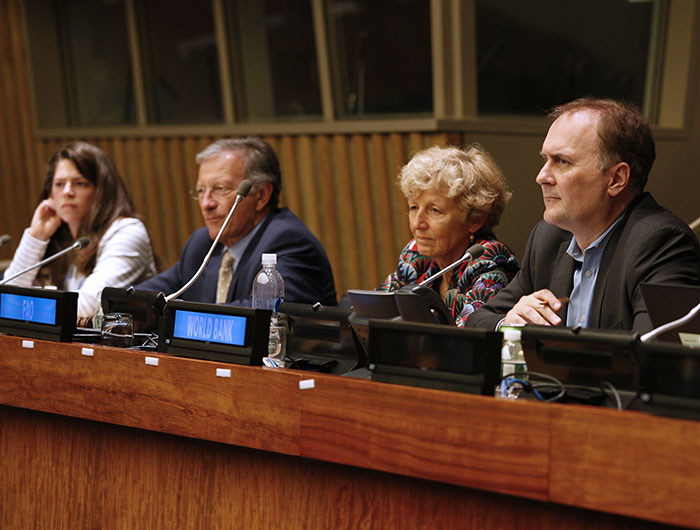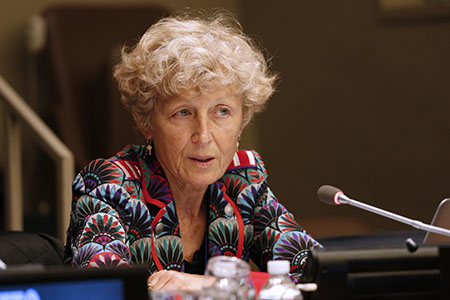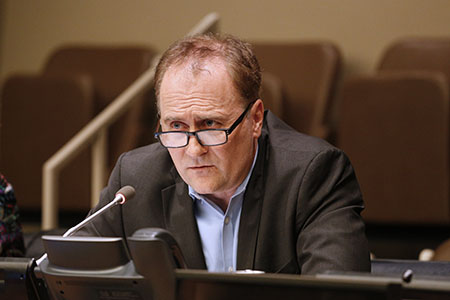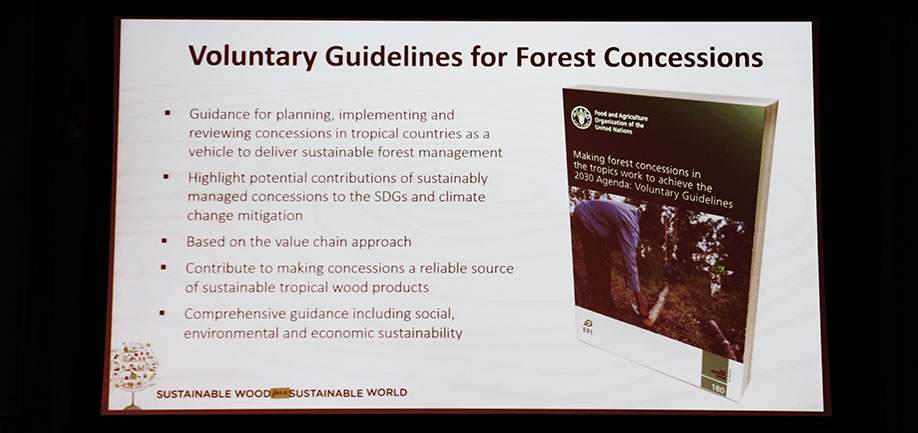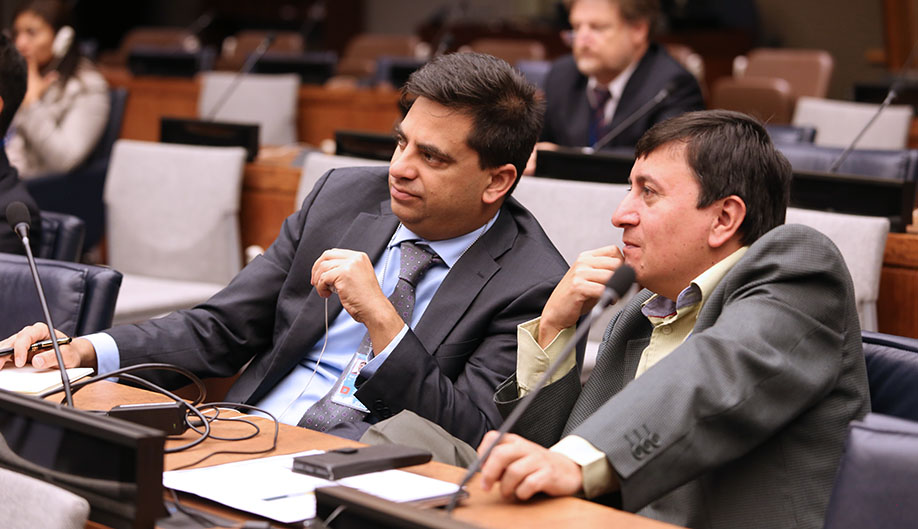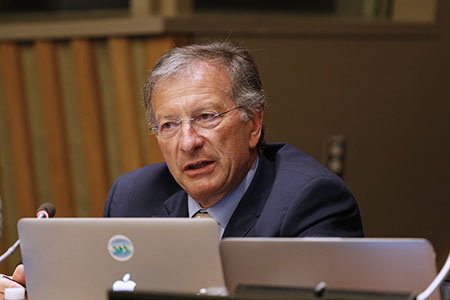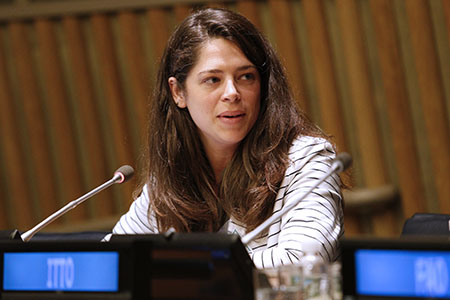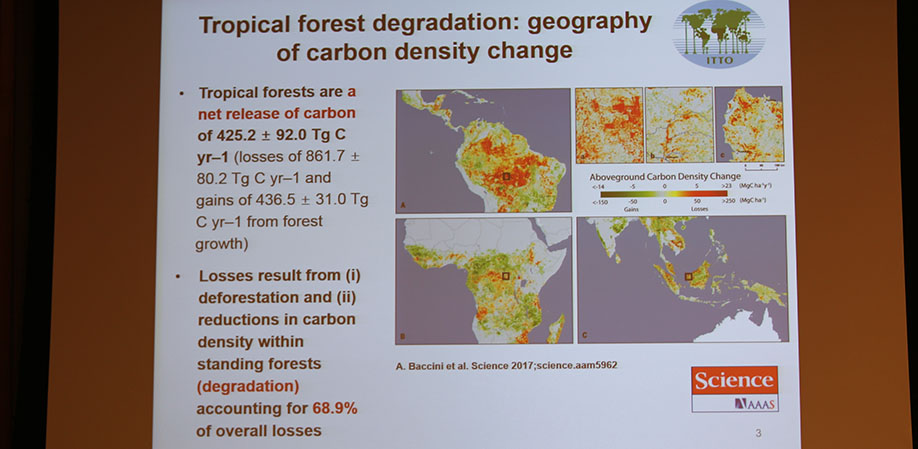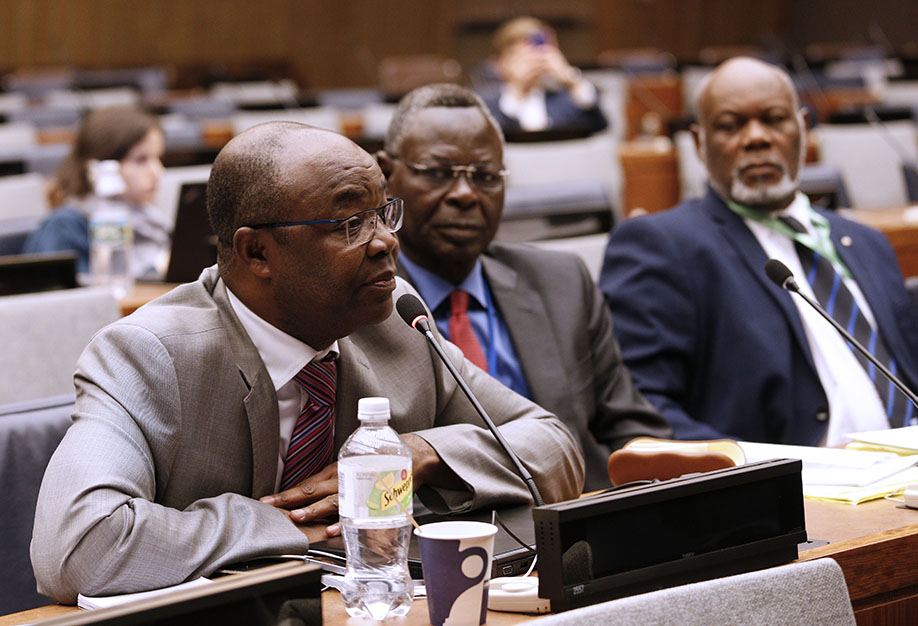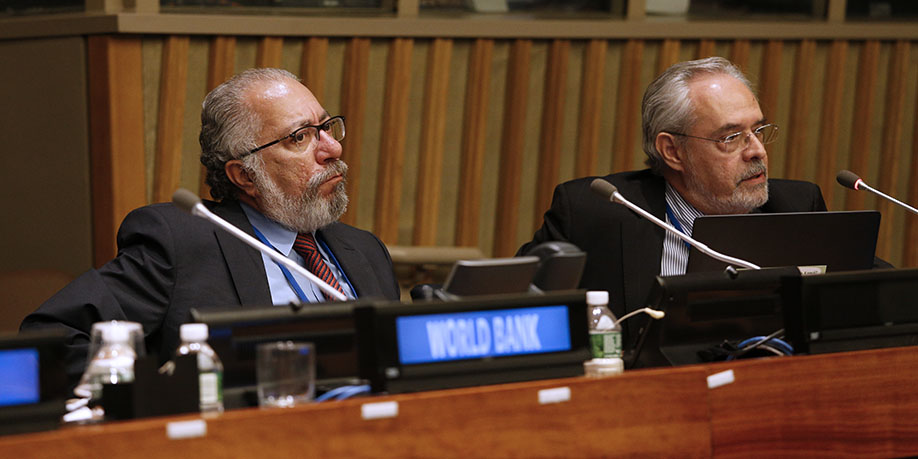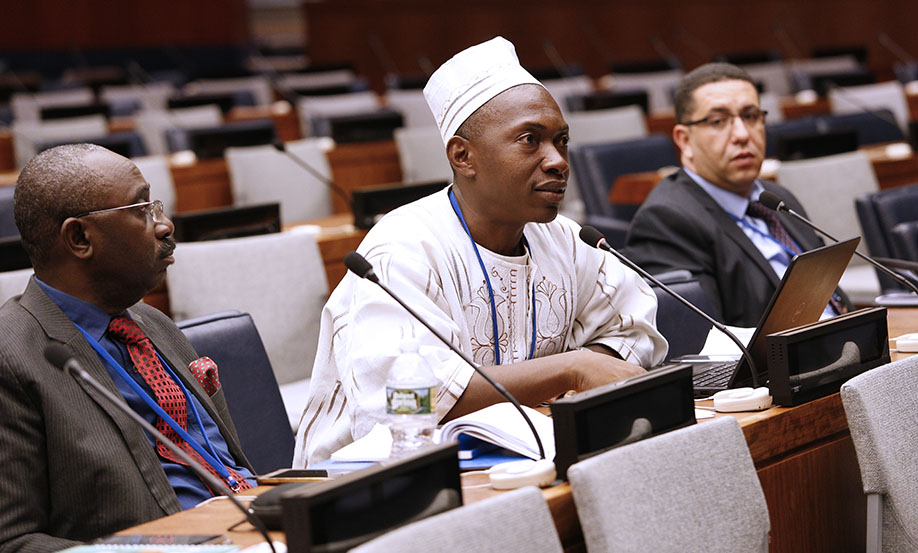|
The Food and Agriculture Organization of the UN (FAO) launched the first-ever voluntary guidelines for forest concessions in the tropics, during an event organized on the sidelines of the thirteenth session of the UN Forum on Forests (UNFF13). The FAO event “Sustainable Wood for a Sustainable World” was held on 10 May 2018. UNFF13 took place from 7-11 May 2018 at the UN Headquarters in New York, US.
In addition to the launch, participants from governments, the UN system, civil society and other international organizations discussed the new initiative “Sustainable Wood for a Sustainable World” of the Collaborative Partnership on Forests (CPF), which aims to explore the interlinkages between forest management, landscapes, value chains, livelihoods, markets, investments and financing mechanisms.
Opening the event, Werner Kornexl, the World Bank Group, noted that, in the tropics, forest concessions remain the greatest source of forest production. He explained that, in the long term, sustainable forest management (SFM) is the only way to maintain a healthy forest ecosystem in light of the continual expansion of agricultural activity. He said the World Bank Group has recently increased its funding for forest programmes from US$800 million to US$1 billion. Kornexl added that forest concessions represent what countries increasingly demand from the Bank, in terms of both technical capacity building and financial support.
Eva Müller, Director, Forestry Department, FAO, presented the objectives of the “Sustainable Wood for a Sustainable World” initiative:
- Raising awareness of the availability of sustainable wood products and their wide uses and benefits;
- Dispelling the perception of wood production as a driver of environmental damage and inequity;
- Unblocking markets and financing for sustainable wood;
- Building capacity for strengthening sustainable wood value chains;
- Showing how, when and where wood contributes to sustainable bioeconomy.
Explaining that forest concessions represent the first link in the forest products value chain, and thus are essential for sustainable wood production, Müller launched the “Voluntary Guidelines for Forest Concessions.” She noted that the publication provides guidance for planning, implementing and reviewing concessions in tropical countries as a vehicle to deliver sustainable forest management. She said the text also highlights the potential contributions of sustainably managed concessions to the SDGs and climate change mitigation. Müller added that the publication provides comprehensive guidance–including social, environmental and economic sustainability–to making concessions a reliable source of sustainable tropical wood products.
Speaking about the degradation of tropical forests, Gerhard Dieterie, Executive Director, International Tropical Timber Organization (ITTO), said losses result from deforestation and from reductions in carbon density within standing forests (which account for 68.9% of the overall losses). Noting increasing global wood demand, including a “massive” increase in demand for energy wood in industrialized countries, he called for the restoration and sustainable management of the large areas of degraded forests, as well as for promoting the use of sustainably-sourced wood products.
Antônio do Prado, Brazilian Forest Service, speaking on behalf of Director General Raimundo Deusdará Filho, said the main challenge for sustainable timber production is the competition between timber wood originating from legal concessions and illegally-sourced timber wood, which is cheaper and thus disrupts the market.
Annika Terrana, World Wildlife Fund (WWF), said forest degradation is the “silent dragon” that pushes deforestation. She invited leveraging new technologies to address that. She underscored the need for the expansion of both payments for ecosystem services and of public-private financing mechanisms. Stressing that “in forests we have a proven technology,” Terrana also called for renewed recognition of forest management in combatting climate change, such as REDD+ and deforestation-free commitments.
In the ensuing discussion, participants addressed issues related to best practices for addressing national constraints to improving concessions and forest management, as well as ways to increase demand for sustainable products. |
|


